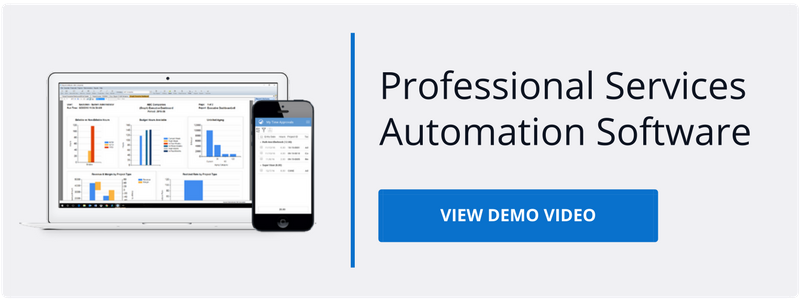Should professional services organizations ever charge up front for their services?
For many professional services organizations (PSOs), this question is a nonstarter. In their view, such an idea is a clear violation of some long-held “my word is my bond” tradition that can only cheapen the client-PSO relationship. Implementing this practice would make it appear as if they were interested in money first…and customer service somewhere after that. This would create an atmosphere of mistrust from the very beginning of their client associations.
For an opposing view, however, look no further than the legal profession, where clients routinely pay retainer fees in advance to secure the services of their attorneys. As a further example, also consider home contractors, who almost always require a deposit so they can buy the materials needed to build that dream house or revamp that kitchen. And don’t forget organizations such as software support firms that typically bill their entire annual maintenance fees up front, before they field even their first service call.
The fact is, a lot of PSOs practice upfront billing – and this trend is continuing to grow. Today, professional services organizations ranging from fitness coaches to photographers to web designers charge some form of initial fee before providing services. Even the medical profession is getting into the act, with many hospitals either billing patients for the cost of their deductibles – or at least working out a payment plan with them – prior to scheduling their elective surgeries.
 A lot of professional services organizations from a variety of industries practice up-front billing.
A lot of professional services organizations from a variety of industries practice up-front billing.
What are the benefits of upfront billing?
Charging up front for professional services can deliver significant benefits for the PSO but also for the client. To be sure, it does provide the obvious: a guarantee that the PSO will receive payment for services. But upfront billing also tells the client that it is dealing with a true pro. In “Why You Should Always Require Money Upfront as a Freelancer,” Janna Hogan states: “Professionals who implement and follow payment policies are viewed as people who take their services and business seriously.” Rather than making a client leery or fostering ill will, then, a properly handled, consistently followed upfront billing process, can actually build the client’s confidence that it will receive what it has paid for.
Professionals who implement and follow payment policies are viewed as people who take their services and business seriously.
From the Mutual Benefits category, an upfront payment for an upfront bill signals to the client and the PSO that both parties are committed to the project. “Without a deposit, you client may still be on the fence about the project,” continues Hogan. “This is a good way to solidify their commitment to working with you.” In her view, this initial transaction lays the foundation for the two-way trust that is vital to every successful project.
How much should you bill up front?
Once the decision to bill up front is made, the next item to address is how much to charge. Consultant Michael Zipursky maintains, “Whether they pay you for your whole month in advance, 50%, 33% or 25%...it doesn’t matter. What matters is that you’ve received payment for the work you are going to provide.”
For some, though, the issue revolves around cash flow. Fifty percent, 33%, or 25% up front still leaves 50%, 67%, or 75% outstanding that could be used now to pay salaries, buy supplies, keep the lights on, etc. A number of PSOs that have traditionally billed post-project are currently beginning to charge 100% of their project fees in advance – before completing even their first billable task.
One organization that sees the value of this seemingly radical notion is the video production company Vanilla Video. According to this firm, 100% upfront payment creates a win for the PSO by –
- Increasing cash flow.
- Curbing inefficient use of administrative resources.
- Preventing customer leverage abuses (e.g., withholding payments).
- Alleviating credit risks.
- Reducing overall operating costs.
 Vanilla Video is one PSO that has embraced 100% up-front payment.
Vanilla Video is one PSO that has embraced 100% up-front payment.
But, as Vanilla Video points out, the concept also represents a win for the client:
- It causes the client to think through the project goals for a better project outcome.
- It offers convenience (one payment vs. multiple payments).
- It provides an incentive for the PSO to complete the client's project faster.
- It optimizes resources (more of the PSO's resources are devoted to the project, rather than to administration).
- It promotes better service (simply put, the PSO wants to please and retain the client).
Switching to upfront billing
Whether it’s 10% or 100%, switching to upfront billing can be a bumpy transition. New clients may not feel comfortable with the idea, and existing clients may not understand the change. For new clients, getting their buy-in can be as simple as explaining your billing policy and then reinforcing it with some of the client benefits listed earlier.
Ultimately what is most important is building and maintaining long and successful relationships with existing and new clients.
Existing clients – especially ones with whom you have a long and successful relationship – may be a tougher sell. Michael Zipursky suggests approaching the subject this way: “To change an existing client over simply let them know that your company is using a new billing system to keep more organized and that all you clients are now paying you in advance or x percentage up front….if you’re doing great work you’ll face very little resistance.”
To bill or not to bill (now)
Like many business operations, billing up front is not a one-size-fits-all solution. Some clients will be open to it; some, not. If a potential client is adamantly opposed to the idea, maybe this is a signal that you should walk away from the deal. For existing clients, however, Michael Zipursky says, “If it [upfront billing] looks like it’s going to jeopardize your lucrative project with them…you’re usually fine working with their rules.”
Ultimately, the question “Should professional services organizations ever charge up front for their services?” is something every PSO must answer for itself. After careful consideration, the response may be “No. Stay with the familiar.” The PSO that does decide this policy is the right way to go, however, may soon find itself joining the ranks of professional service organizations for whom upfront billing means improved project performance, increased client satisfaction, better cash flow – and greater profitability.
For additional information on Beyond Software please contact:
Nicole Holliday
nholliday@beyondsoftware.com
866-510-7839



